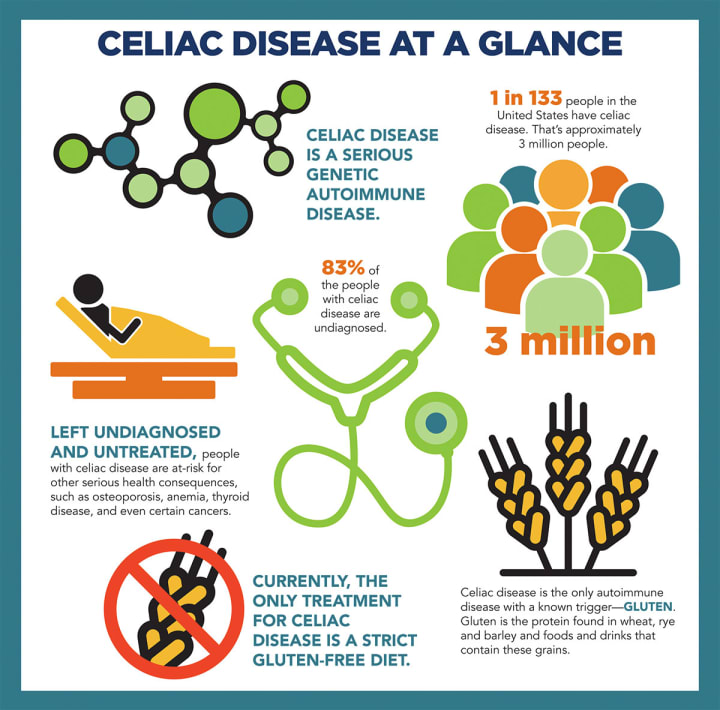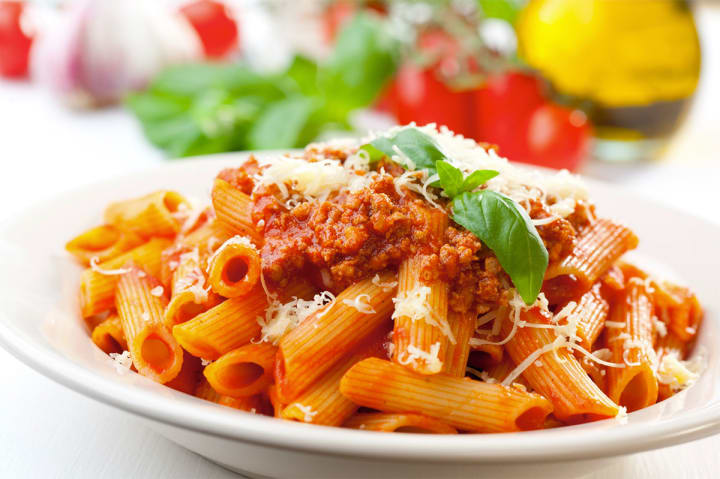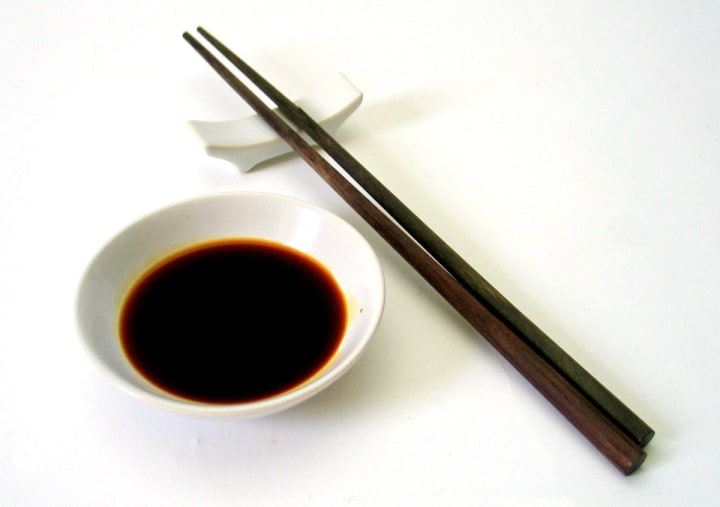Worst Foods for Celiacs Disease
There are certain unsuspecting foods for Celiacs Disease that you must stay away from if you want to avoid triggering the symptoms of the disorder.

Celiac disease is described as a genetic disorder that affects the digestive tract and it can cause serious damages to the small intestine. Celiac’s disease can cause serious interference with the absorption of nutrients from food. An individual suffering from Celiac disease will find it difficult to tolerate gluten- a protein substance found in foods such as rye, wheat, and barley.
There are many symptoms that could suggest that you are suffering from Celiac disease. The symptoms can vary from mild to severe. Abdominal bloating accompanied by pain, diarrhea, vomiting, constipation and foul smelling stool are just a few of such symptoms. Alternatively some adults suffering from Celiac disease might not have symptoms of digestive disorders. The symptoms they might experience, because their bodies will not absorb the necessary nutrients, include weight loss, anemia, fatigue, numbness in the hands and feet, skin rash, blisters, depression, irritability and some auto-immune disorders. These symptoms are just some of the complications people suffering from Celiac’s Disease will experience.
Who can develop Celiac disease?

Infographic via Beyond Celiac
Celiac disorder can happen to anyone, but there are certain categories of individuals who are more susceptible to the problem than others like individuals who are exposed to gluten foods within their first 3 months of birth have a high risk of developing the disorder. Others who may have family members suffering from Celiac’s may develop it through genetic susceptibility. Individuals who are genetically predispose to the disorder and who have suffered pregnancy, emotional and some other forms of stress can also suddenly develop an allergy to foods containing gluten.
Many people may not develop symptoms of Celiac diseases until they mature into adulthood. Early symptoms such as acne breakouts may signal the possibility of developing Celiac disease in the future. The best possible way of diagnosing Celiac disorders is to watch out for persistent symptoms and conduct a blood test. You can’t be certain you have the disorder unless you test your blood levels. The body’s natural immune system reacts to Celiacs disease by puncturing the villi- tiny that are fingerlike fibers that line the small intestine. Damage to the villi will prevent absorption of nutrients needed for the body to function. You might not see any symptoms for a while so its good to just check yourself everyone in a while to prevent it from happening.
Foods for Celiacs Sufferers to Avoid

Image via AlbertaFarmer.com
It is quite important to check the labels of all products you consume. There are some processed fruits and vegetables coated in breadcrumbs that contain gluten that can trigger symptoms of Celiac. Certain whole wheat breads, crackers, pasta, chocolate bars, toffees and sweets that may appear unsuspecting have hidden components that may contain sufficient amount of gluten. Some symptoms may be temporary though others can lead to permanent damage to your body. Here are some of the worst foods for Celiacs disease that you should always avoid if you have been diagnosed with the disorder.
Flour

Image via PCH Blog
Flour is the worst food for Celiac’s disease. It is important that you check the ingredients on any label on food made from flour because some products do not give warnings of gluten. Flour made from barley, wheat and rye contains high amount of gluten. Some of the products you must watch out for include; Semolina, white flour, durum flour and Graham flour. Always keep in mind that even the products labeled as wheat-free, does not mean it is gluten-free.
Beer

Image Realtor.com
Beer may not be as bad as flour for individuals suffering from Celiacs disease, but it does contain malted barley, yeast and hops. Barley remains the most widely used in malt and may be used as a substitute for rice, rye, oats and wheat in the brewing of beer. Try to avoid beers such as stout, Ale and Porter.
Malt

Image via The Daily Apple
Malt is a special type of grain that has been allowed to sprout, for the purpose of brewing. Malt products, such as malted milk, malt vinegar, malt syrup and other malt extracts, must be avoided by individuals suffering from Celiacs disease.
Cereal

Image via TodayIFoundOut.com
Most people think cereals are generally safe for everyone, but it can be one the worst foods for celiac’s disease. Because they can contain bran, wheat germ, oat bran, wheat grass, whole wheat berries and farina they can trigger symptoms for Celiac sufferers. Many commercially produced oats have also been found to be contaminated with barley and wheat, though, pure oats, in limited amounts, can be tolerated by those suffering from Celiacs. It is important that you consult your doctor if you want to eat such foods.
Couscous

Image via Epicurious
Couscous is prepared from Semolina which is one of the foods for Celiac sufferers to avoid. Semolina is derived from the hard part of wheat and usually contains gluten which can cause many symptoms of Celiacs disease. Barley is usually used in the making of Couscous, a tiny pasta that should be avoided by Celiac sufferers.
Pasta

Image via Hirerush.com
The three main ingredients in Pasta are flour, egg and water, however, some pasta are made from bleached flour, semolina and whole wheat are foods for Celiac sufferers must avoid. Many noodles that are made from finely ground rice can be a good alternative to pasta because they do not contain gluten. Just make sure to check the labels.
Soy Sauce

Image via Asian Choice Cuisines
Soy sauce is a special form of condiment that is prepared with fermented mixtures of enzymes, mashed soybean and salt. Many brew recipes of soy sauce normally contain equal proportion of ingredients such as pulverized wheat and crushed soy beans that contain gluten. For these reasons, soy sauce must be avoided by Celiac disease sufferers.
Snack Foods

Image via WiseGeek
Some snacks like crackers, popcorn and crisp breads are known to contain hidden amounts of gluten, however, such warnings may not be made available on the labels of the products. Check the labels. Other desserts and puddings including sorbets, meringues, molasses, peanut butter, jams, honey, pretzels, tarts and puddings made from flour, must be avoided at all costs because they can trigger Celiac symptoms. Check the labels always.
Bread and Cakes

Image via Grocery.com
Most branded cakes, breads and biscuits found in supermarkets are capable of triggering Celiac symptoms. Similar foods such as cornflakes and rice snaps, also contain some amount of gluten, because they have been processed. Bread products, including croissants, matzos, muffins, scones, pancakes, pizza, wafers and ice cream cones are also included in the worst foods for Celiacs disease.
Quinoa

Image via Twice the Health
Most people consume Quinoa because of the belief that it is quite safer than consuming wheat, but the truth is that Quinoa can trigger the release of the peptides that can cause symptoms relating to celiac disorders.
Potatoes

Image via Martha Stewart
Other foods such as processed potatoes, including potato chips may trigger some symptoms associated with Celiac, however, boiled potatoes are generally safer for most people that are sensitive to gluten. Wheat-based breakfast cereals, including Mueslis are also capable of triggering celiac disorders in some individuals.
Battered, Coated and Fried Foods

Image via Food.com
Some products that are coated in batter or bread crumbs may also trigger Celiac disorders. For instance, meat does not cause Celiac disorder but when it is coated with batter, then an individual eating such food may react with symptoms. Other foods such as pies, stuffing, fish fingers, burgers, chicken nuggets, fish cakes, and rissoles, may be covered with batter. These are a must to be avoided when making foods for Celiacs disease in mind.
About the Creator
George Gott
Writer & Social Media Editor for Jerrickmedia who is an avid reader of sci-fi and a fierce defender of women, minority, and LGBTQ rights.






Comments
There are no comments for this story
Be the first to respond and start the conversation.